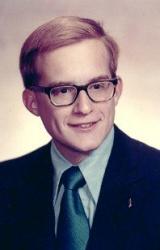1775 - 1859 Person Name: Clark (? Thomas, 1775-1859 Composer (attributed to) of "WARSAW" in Together in Song
Baptized: February 5, 1775, Canterbury, Kent, England.
Died: May 30, 1859, at his home in St. George’s Street, Canterbury, Kent, England.
A cobbler and choir trainer, Clark led the singing of the Psalms at the Wesleyan Chapel, Canterbury, and later at the Unitarian Church in Canterbury. It has been claimed he never actually joined the Unitarians, though he sympathized with them, and he resigned from the Methodists. Clark wrote a number of anthems, including "Awake Up, My Glory", "Daughter of Zion" and "Since I Have Placed My Trust." His other works include:
First Sett of Psalm and Hymn Tunes, 1805
Second Sett of Psalm and Hymn Tunes, circa 1810
Congregational Harmonist, 4 volumes (1828 to circa 1835)
The Sacred Gleaner, 1830
The Union Tune-Book, 1837 (co-editor)
Union Harmonist, 1841
Harmonized the second edition of the Union Tune Book for the Sunday School Union, 1842
The Juvenile Harmonist, 1842
David’s Harp—A Series of Original Tunes Composed Expressly to the Psalter, 1843
The Seraphim or Sacred Harmonist, 1843
British Psalmody, with Alexander Hume (Edinburgh, Scotland: 1844)
--www.hymntime.com/tch/
Thomas Clark


 My Starred Hymns
My Starred Hymns






